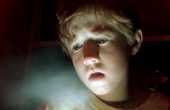Tigey
Booing the separation of Gertrude Malissa Nix Pridgett & Ludwig von, bass brass blowers @flagstaffs & the federal S&L's lucrative spiritual atlases.
Contributor II
- Lurker
- Pssst
- Hand Raiser
- Vocal
- Outspoken
- Extrovert
- Sharp-Eyed Citizen
- Town Watch
- Detective Deskman
- Article of the Month
- ?
- Articles
2 - Featured
2 - Comments
233
- Ext. Comments
174 - Processed
39 - Revisions
36
- Topics
22 - Topics Taken
7 - Notes
132
- Topics Proc.
52 - Topics Rev.
36
- Points
1480 - Rank
50 - Score
1392
Latest Articles
Latest Topics
Existentialism and Moral Relativity as an Artistic CrutchJudging by volume, it seems easier to write morally ambiguous screenplays. Such screenplays also seem to benefit from the default of events being meaningless or random in a meaningless or random existence (e.g., Tony Soprano's series-ending "dirt nap"), while works regarding morality as objective, ala Breaking Bad, must convincingly explain actions and repercussions without the easy shrug of "stuff happens." If we set the Way Way Back Machine to say, a century ago, the bar of acceptance for atheistic works was high, but today, its bar for justification seems awfully low. Whaddya think about that, my friend?
|
Gene Wilder's LegacyOn August 29, 2016, Gene Wilder passed away from complications from Alzheimer's disease. Whether playing Dr. Frankenstein in "Young Frankenstein," or Willie Wonka in "Willie Wonka & the Chocolate Factory," Wilder's whimsical, gentle spirit drew smiles from people of all ages. Which performances are Wilder's finest? What makes his contribution to film especially memorable? In general, what is Gene Wilder's legacy? |
Aging in CinemaWhich movie or movies show(s) the most realistic human aging? What makes the portrayal of the aging process especially realistic or effective? Besides physical changes, what psychological, mental, or spiritual changes are shown in the film(s)? What, if any, abilities lost with youth are most dearly missed?
|
Who's Your Daddy: Great Thespian FamiliesThis topic is about families of actors, and directors, not movies about fictional or real families. Besides the long line of Barrymores, who are drama's greatest families? The Bridges? Kirk Douglass, his son, Michael Douglas, and his sons? Blythe Danner and daughter, Gwynneth Paltrow? John Carradine and sons, Richard and Keith? Who are they? What makes them great? Is their dramatic influence expected to continue? By which younger family members? In acting or directing? Relatively speaking, this could be a mother of a topic.
|
Top Ten Beautiful Voices in CinemaAMC.com's "The All-Time Top 100 Voices in the Movies" list begs for debate. It's top ten is below. These are not the rubber-voiced talents of a Mel Blanc or Seth McFarlane whose faces don't appear on screen. Nor are they the distinctive but (to many) annoying – pipes of a Melanie Griffith, Gilbert Gottfried, Rosie Perez, or Bobcat Goldthwaite. These are the actresses or actors whose dulcet voices are as memorable as any other part of their skill set. What is it about their voices that sets them apart? Which cinematic performance is their most interesting and distinctive? Who would you add – say Valeria Golino, Ossie Davis (my favorite male voice), Gene Hackman, Marion Cotillard, or Bryan Cranston? – to the list? Who would you drop, if anyone, from the list? And, finally, what makes the voice of someone such as Holly Hunter (my favorite female voice) so attractive, while another's voice misses the mark? AMC.com's "Top Ten Voices" list: 10. Peter Sellers |
Labor Unions in the MoviesIn about 45 days (about the time it takes to write an article for this site), on October 15, it will be the 102nd anniversary of the Clayton Anti-Trust Act, which laborer leader Samuel Gompers called “labor’s charter of freedom,” exempting unions from anti-trust laws. It also legalized boycotts, pickets, and strikes. It also banned the monopolizing practice of price-setting. Below is Time Magazine's list of Top Ten Labor Union Movies How Green Was My Valley, 1941 Choose at least one film, either on the list or not on the list, and analyze whether the film portrayals of labor unions have been prophetic, inaccurate, or somewhere in between. |
That's the Spirit: Best Movies about AlcoholThis just in from your House of Representatives via govtrack.us ((link) my fellow Americans: "Every time you drink a beer, you pay extra because federal law adds an excise tax. In fact, an estimated 40 percent of beer’s cost is due to taxes, higher than for many other consumer products. A bill currently pending in Congress would eliminate that tax for more than 90 percent of distributors. And even for the biggest distributors like Budweiser and Miller, it would still significantly cut the tax for them too. Which would mean lower prices for you." Congress' conversations about alcohol taxation, of course, begs the question, What are the best movies about alcohol, be they legal booze, Prohibition and mafia-produced hooch, or films about alcoholism – such as Leaving Las Vegas, Lost Weekend, etc.? What makes the films especially valuable? Should movies about alcohol speak only of the dangers of booze or should they show just the fun side of alcohol, or can they show both the fun and dark sides of the stuff? Feel free to use as many or as few films to make your point(s). |
Ugly Ducklings: Actors Whose Craft Has ImprovedI have never been a fan of Ben Affleck. His solo scene in Good Will Hunting in which his character (Chuckie Sullivan) realizes that Matt Damon's character (Will Hunting) has indeed left for California is awful. However, in Argo, his acting was much better. This topic is not about the Jack Nicholsons, Robert Duvalls, and Michael Caines of the cinema world who started off as gifted actors who've achieved greatness. It's more about the Paul Newmans who initially got by with looks (like Redford), but improved exponentially with experience (unlike Redford). Nor is it about the Harrison Fords who started out mediocre and never got much better. Which actors, in your opinion, have shown tremendous growth after a less than auspicious start? How does this happen? Which early performance(s) left you underwhelmed? Why? Which later performance(s) convinced you of their improvement? Why? One challenge of this topic is communicating the actor's progression beyond, "Pauline Kael says…" But hey, that's a start.
|
Latest Comments
| Objects in Breaking Bad: If Things Could Talk | |
Excellent point. | Vague Horror: The Scariest Kind of Horror |
Thanks. | Objects in Breaking Bad: If Things Could Talk |
Thank you. | Objects in Breaking Bad: If Things Could Talk |
Thanks, Paige. | Objects in Breaking Bad: If Things Could Talk |
No tengo idea. | Objects in Breaking Bad: If Things Could Talk |
As I said, (1) studies (not anecdotal “evidence”) show that babies respond positively to some faces than others – facial symmetry is supposed to be a big part of this attractiveness; (2) attraction to what you refer to as “ugly” might have more to do with the subjective experiences of the admirer than objective beauty (e.g. I may like big, pickle-like noses not because they are objectively attractive, but because the nose reminds me of a kind friend or relative); (3) I said “if” because I’m not as sure as you are of all of this, which is interesting since your, ahem, “evidence” is anecdotal; and (4) I disagree that art is more complex than the human face – if God made the face, we are pikers in comparison; if millions of years of evolution created the face, then hours on canvas do not compare. | That's Just, Like, Your Opinion, Man: An Argument that Art is Objective |
Thanks. Chuck said of his brother, Saul (Jimmy): “He does the worst things for the best reasons.” I think Chuck is the converse, doing the right things for the wrong reasons. Both men are what writer Sherwood Anderson called grotesques: people focusing on one truth to the exclusion of all other truths. I’m a season behind on Saul, though… | Objects in Breaking Bad: If Things Could Talk |


Good eye. I’m on S1 E3 of my latest rewatch and now have another thing to watch for.